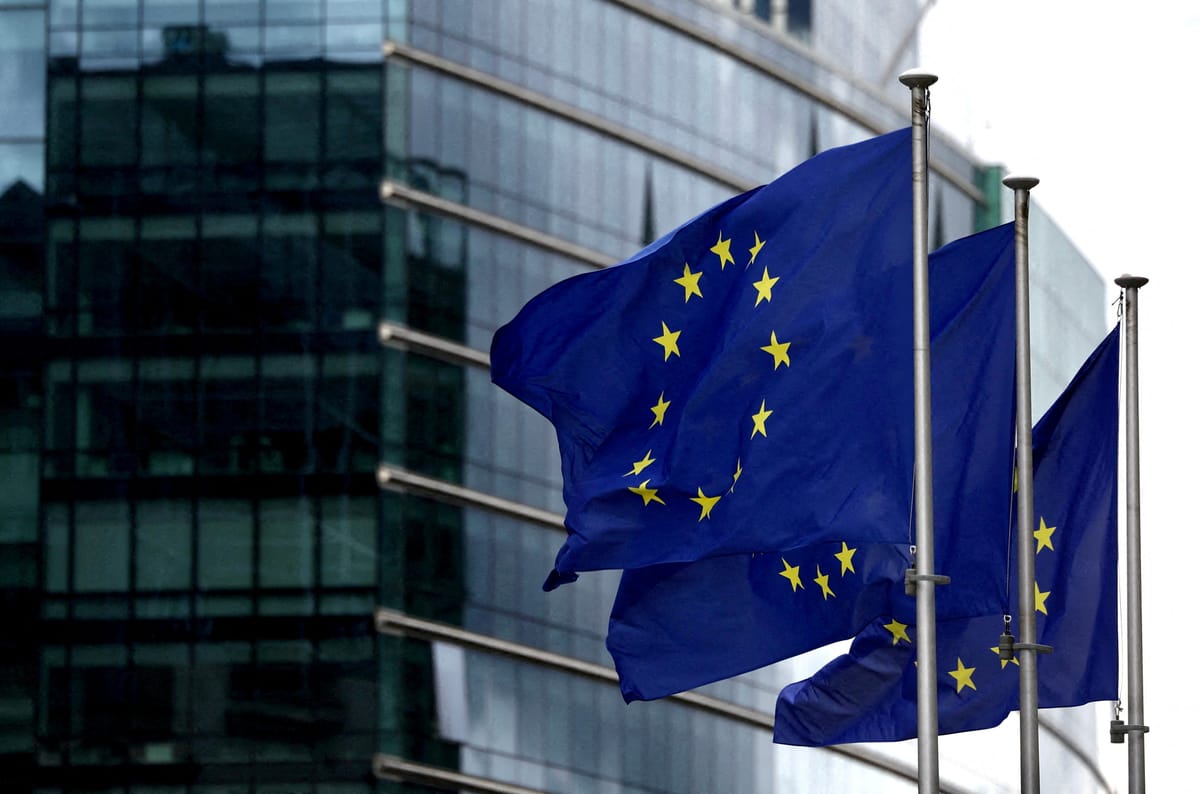How tech giants are adapting to the EU's Digital Markets Act
With the EU cracking down, these industry titans are scrambling to adapt.

A few minutes every morning is all you need.
Stay up to date on the world's Headlines and Human Stories. It's fun, it's factual, it's fluff-free.
The backstory: In 2022, the EU made headlines by rolling out the Digital Markets Act (DMA), which aims to make the digital market fairer and more competitive. It directly targets big online platforms with over 45 million users, which are considered "gatekeepers" because they wield a lot of power when it comes to data and controlling who gets access to their platforms. Last year, the EU named six major companies as gatekeepers – Alphabet, Amazon, Apple, ByteDance, Meta and Microsoft. They were given until March 7 this year to follow the guidelines or face massive penalties.
The DMA says that these platforms can't play favorites with their own services and products, can't mix and match personal data from their different services and can't use data they gather from third-party sellers to go up against them (among other restrictions). And if they break the rules, they could face fines of up to 10% of their annual revenue. Repeat offenders might even get smacked with fines of up to 20% of their annual earnings.
More recently: This week, the EU slammed Apple with a hefty €1.8 billion (US$2 billion) fine related to a complaint from Spotify. This marks the third-largest fine handed down by European regulators for anticompetitive behavior. Now, the European Commission is keeping a close eye on Apple's updates to its iOS, Safari and App Store in the EU to make sure the tech giant follows the DMA. As some companies prepare for potential legal battles, ByteDance's TikTok is already feeling the sting, losing a bid to dodge DMA compliance while appealing its designation as a gatekeeper.
The development: With the EU cracking down, these industry titans are scrambling to adapt. Apple is taking action by adjusting its App Store fees and allowing third-party apps to be installed on its devices. Google is vowing to offer more options for Android users and link other comparison sites for travel and shopping in searches, while Meta has said it would unlink Facebook and Instagram services. Microsoft is allowing some of those automatically bundled programs in Windows to be uninstallable. Meanwhile, Meta has announced an ad-free subscription option for Facebook and Instagram in Europe in response to regulatory concerns.
Elon Musk's X is also under the EU's radar, and the bloc has 45 working days to decide whether it, Booking.com and ByteDance fall under the new guidelines. But the industry is pushing back, too. Apple, Meta and TikTok are all fighting in court over whether they should be considered gatekeepers. They're also challenging some specifics within the new guidelines.
Key comments:
"The most significant challenge is from Apple because it challenges one of the DMA's rules, which requires it to give app developers the same ability to use iPhone functions which Apple reserves to itself," said Zach Myers, the assistant director for competition at the Centre for European Reform. "But even if that case succeeds, most of the DMA will still be in force."
"ByteDance has failed to demonstrate the urgency required for an interim order in order to avoid serious and irreparable damage," said EU judges, referring to the court fight to suspend its role as a gatekeeper. "ByteDance has not shown that there is a real risk of disclosure of confidential information or that such a risk would give rise to serious and irreparable harm."
"For a decade, Apple abused its dominant position in the market for the distribution of music streaming apps through the App Store," said EU antitrust chief Margrethe Vestager. "They did so by restricting developers from informing consumers about alternative, cheaper music services available outside of the Apple ecosystem."




Comments ()